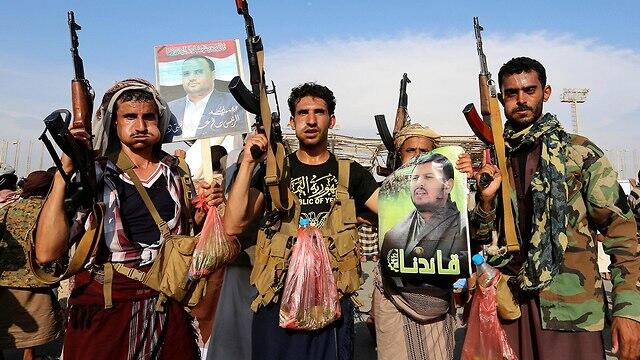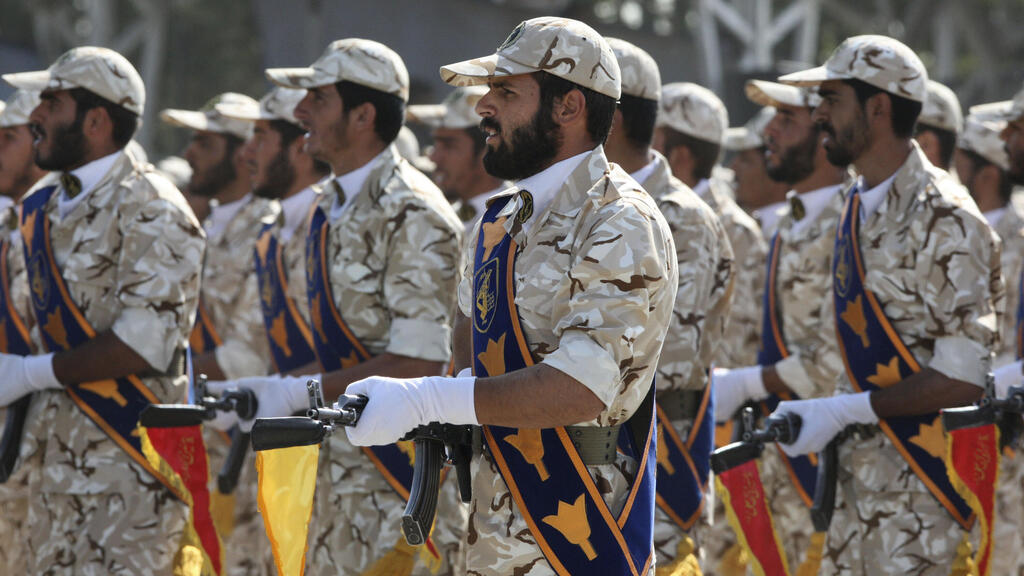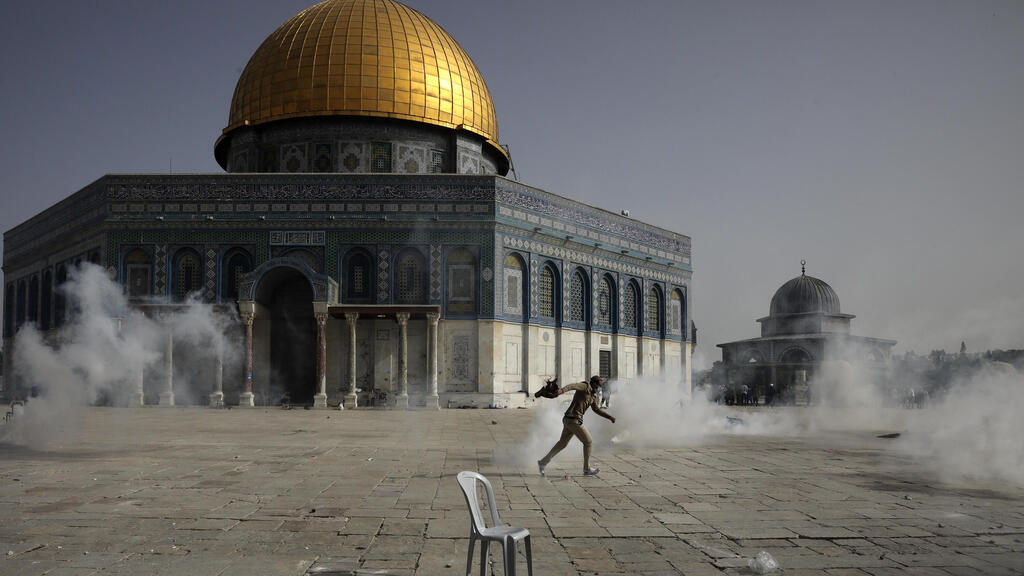Just two weeks ago, Saudi and United Arab Emirates' leaders refused to accept calls from U.S. President Joe Biden.
Their anger has been brewing for awhile, due to U.S.' willingness to revive the Iranian nuclear deal, but has exploded after America showed their readiness to remove the Iranian Revolutionary Guard Corps (IRGC) from the list of Foreign Terrorist Organizations (FTO).
5 View gallery
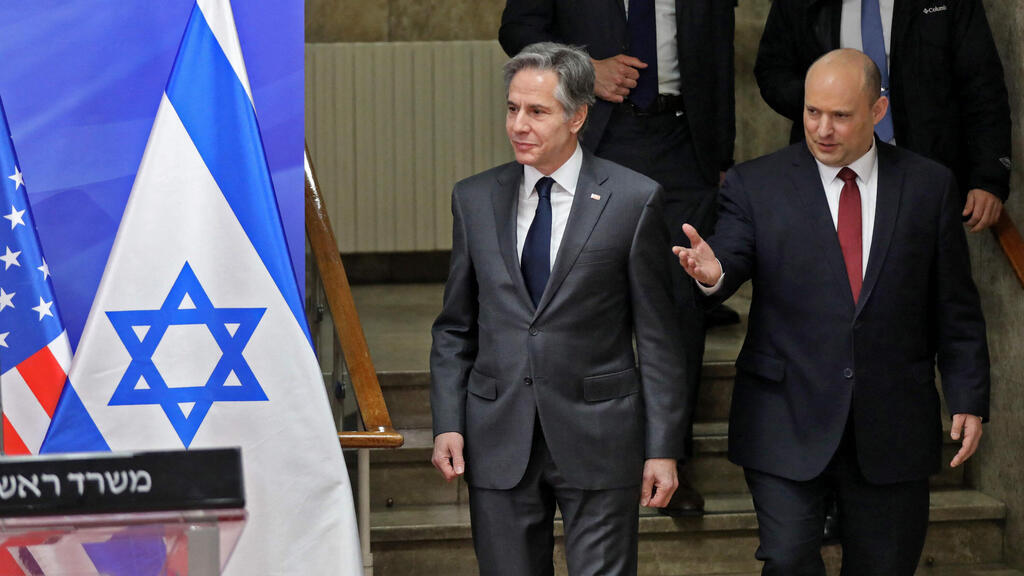

U.S. Secretary of State Antony Blinken meets Prime Minister Naftali Bennett ahead of the summit
(Photo: AFP)
The news comes weeks after the Houthi rebels - Iran's proxies in Yemen - were also inexplicably removed from the notorious terror list by Biden.launched multiple drone and missile attacks on Saudi oil facilities.
This is the backdrop of the Negev Summit hosted by Foreign Minister Yair Lapid, with the participation of the U.S. Secretary of State Antony Blinken and the foreign ministers of Egypt, Morocco, the UAE and Bahrain.
The attacks on the Jedda oil facilities were not helpful to Blinken, whose administration hoped to lower the cost of oil, having banned the Russian energy in the wake of its invasion of Ukraine.
Oil prices are expected to reach $120 a barrel following the oil facilities' attack, and Saudi leaders announced they would "bear no responsibility" for a shortage in supplies in the global markets.
The Iranians, meanwhile, have also raised their energy prices, insisting that removing the IRGC from the FTO was an unnegotiable precondition to signing the nuclear agreement.
The concern of the moderate Arab states in the region, however, is unlikely to drastically sway the outcome of negotiations in Vienna. Washington and its lead envoy on Iran - Robert Malley - continue to blindly and stubbornly run towards a deal.
Just as the Houthis' removal from the terrorist list made them much more brazen and deadly, the same can be expected to happen with the IRGC.
A nuclear deal would free Iran from sanctions and lead to an influx of cash that would provide these angels of destruction with overwhelming new power.
The Negev Summit reflects the unique status Israel holds in the region. No Arab state truly trusts America to understand and act in the best interests of the region, leaving Israel as the grown up in charge.
Not only do Bahrain, Saudi Arabia, the UAE, and Egypt know that Israel is the leading regional power, they are also aware of the importance of an alliance with Israel. While Jordan and Saudi Arabia will not attend the summit, their presence "in spirit" is evident.
The Arab countries have all the reasons to worry. The geopolitical analysis clearly points to Iran as the main source of bloodshed, economic downfall, and destruction in the Middle East.
The Houthi rebels control most of Yemen - which is one of the poorest countries in the world with an average annual income of $1,000; Lebanon has also been experiencing an economic downturn in recent years, making it vulnerable to a similar fate; Iraq and Syria are home to powerful pro-Iranian militias that kill and destroy the countries from within.
Israel, on the other hand, is not only a military power with the means to stand against Iran, it is also a source of innovative agriculture, desalination systems, modernity, and groundbreaking technology.
When weighing out the pros and cons of both options - as America warms up to Iran in the background - coalition with Israel seems like the only rational choice for the moderate Arab nations. Certainly this is not a friendship born out of love, but rather an interest-based rational decision.
The right choice is a given, and if the Palestinians would only realize the advantages of putting interests above hatred and rage, they could also be in a better place today. It is still not too late - they are more than welcome to join.
The summit will take place in Sde Boker, a location that is directly associated with David Ben-Gurion, a Zionist icon, seen by the Palestinian as the enemy of their very being, who brought about "the Nakba" - catastrophe - that befell them with Israel's establishment in 1948.
This is obviously nonsense. The Palestinian refusal to accept a UN resolution calling for both a Jewish and Palestinian state to be established is alone to blame for the Nakba. For a change to take place, one that will help them more than anyone, they must relieve themselves of their deep-rooted, outdated self-deception.
The Arab foreign ministers may pay their respects at the Zionist leader's gravesite. Nobody would have ever dreamed of such a thing a decade ago. Yes, it may only be a symbolic tribute, but here in the Middle East, symbolism is weighty.
5 View gallery
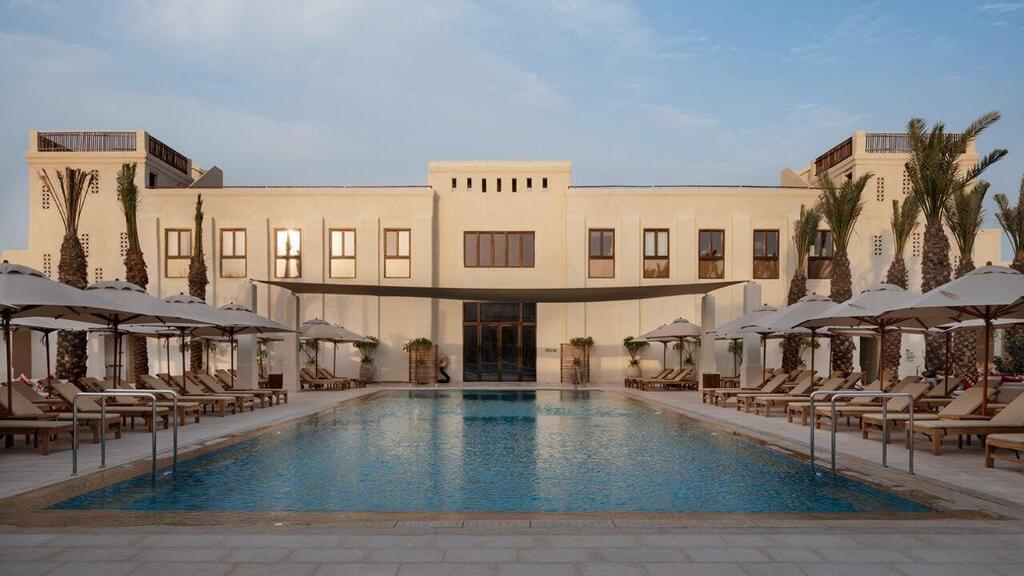

Isrotel Kedma Hotel, Sde Boker, the site of this week's summit
(Photo: Assaf Pinchuk)
Its a shame, however, that the chances to sway the American stance and force it to consider the consequences of the threat posed by Iran, are slim.
As the West unites against Russia, its position towards Iran becomes alarmingly soft.
This Iran, that the West is slowly relieving of sanctions and condemnations, is the same regime that has caused more ruin, devastation, and bloodshed than Russia ever has.
If diplomacy succeeds to bring about any significant changes in the wake of the summit, it will be a considered the icing on the cake.


